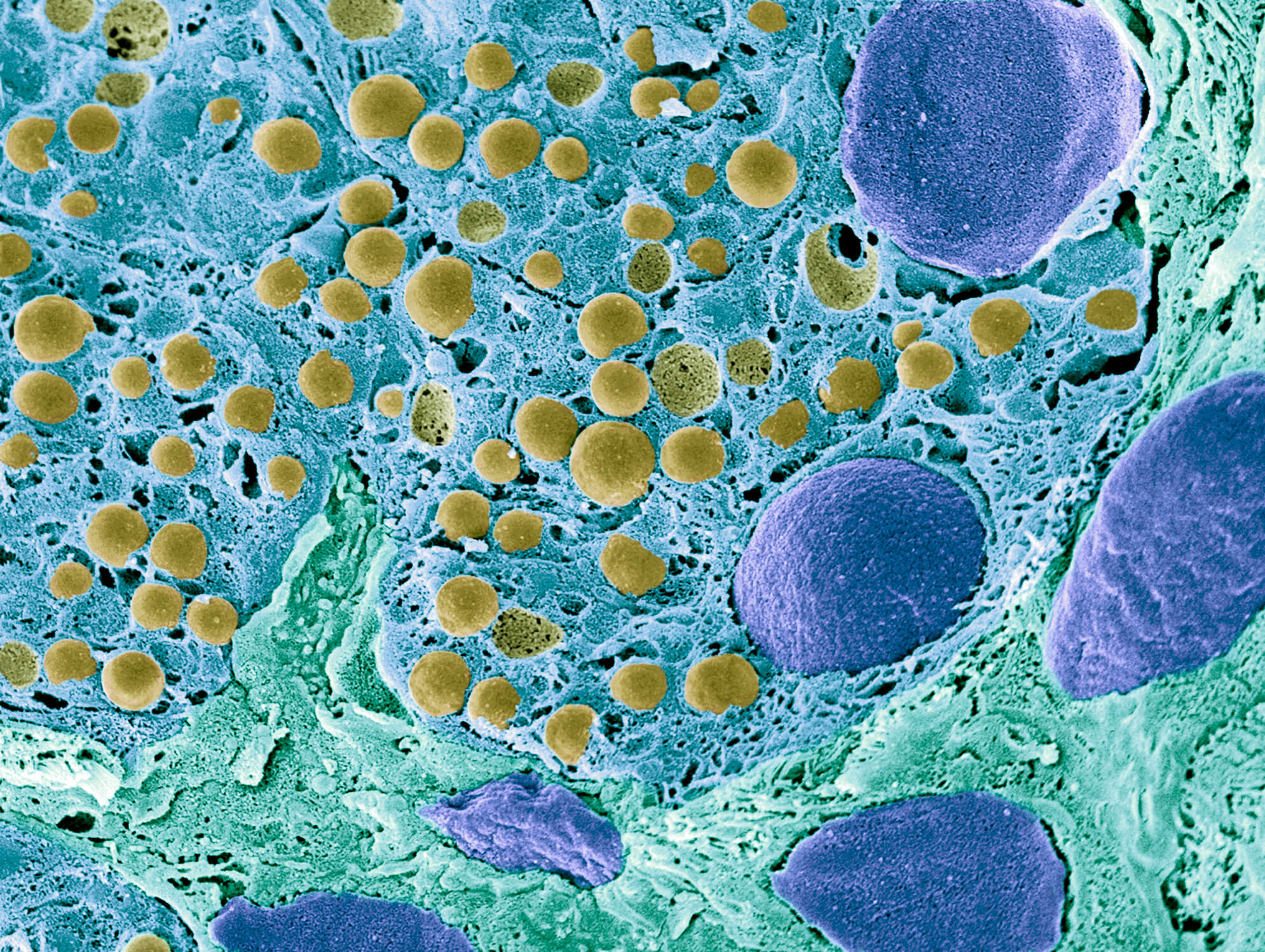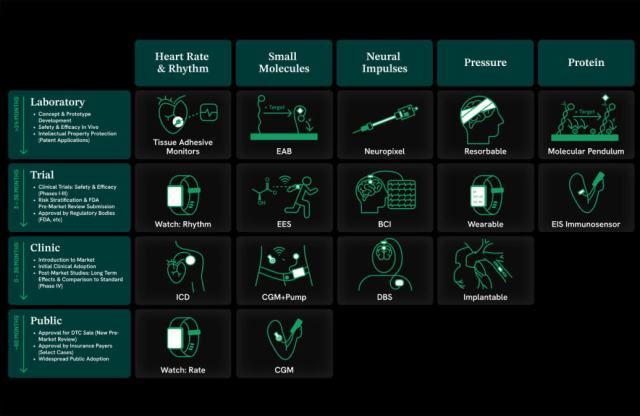Jun 6, 2019 · 6 min read
McGill University’s Centre of Genomics and Policy Receives Funding to Create Ethics and Governance Resources for the Human Cell Atlas Initiative
New Policies, Tools, and Support to Enable Efficient, Ethical International Data Sharing for this Global Effort to Map All Cells in the Human Body

The Chan Zuckerberg Initiative (CZI), The Leona M. and Harry B. Helmsley Charitable Trust, and the Klarman Family Foundation today announced $468,860 in collaborative funding to support ethical biomedical research and responsible data sharing for the Human Cell Atlas (HCA), an international effort to map all cells in the human body. The Centre of Genomics and Policy (CGP) at McGill University will help guide and inform the approach and governance of data sharing to assist participating investigators to collect and share data.
“The Human Cell Atlas is global in vision, content and potential impact,” said Bartha Maria Knoppers, Professor at McGill University and Director of the CGP. “The human right to benefit from scientific advances means that HCA governance and policies must be principled, pragmatic, and practical to enable the scientific community to interact with patients.”
The HCA launched in 2016 with a goal of creating a reference catalog of all human cells, their proportions, their locations, and the interactions between them. The consortium, which comprises more than 1,300 scientists from over 800 institutions representing over 60 countries, seeks to profile at least 10 billion cells covering all tissues, organs, and systems. The full Atlas will be as diverse as possible, capturing a range of diseases, geographic locations, environments, and age groups. The HCA is committed to the highest ethical, legal, and regulatory standards.
Resulting data will be open and easily accessible to researchers and clinicians all over the world. Such a global collaboration requires guidance on best practices for respecting donor privacy while embracing open sharing of data to accelerate progress.
The CGP will work with the HCA to consider regulatory and ethical questions arising from research at this scale and to incorporate ethical considerations into policies. It will develop a framework for patient consent and guiding principles for HCA investigators, and will establish an ethics helpline to provide ongoing support related to these issues. The project will also address challenges such as evolving and potentially conflicting international regulations and guidance governing use of health information, exchange of samples, and additional complex, technical components.
“With this grant, multiple international funders have come together to support a central resource that will benefit the HCA community,” said CZI Head of Science Cori Bargmann. “We’re excited to work together to support a coordinated, innovative, and transparent model for anticipating and considering ethical issues, which will help ensure that human dignity, privacy, and engagement are carefully considered in scientific research.”
The CGP is a leader in this field, working at the crossroads of law, medicine, and public policy to help advance medical research.
“With the exciting promise of the Human Cell Atlas’s vision also comes many important considerations,” said Kim McCabe, Executive Director, Klarman Family Foundation. “We’re delighted to be involved in this innovative, global consortium and in supporting the development of essential tools and frameworks to help ensure that ethical considerations are central to that vision.”
The HCA is governed by an organizing committee that is currently co-chaired by Aviv Regev from the Broad Institute of MIT and Harvard, and Sarah Teichmann from the Wellcome Sanger Institute.
“The Human Cell Atlas holds tremendous potential to advance patient-centered research and precision medicine, particularly for Crohn’s disease,” said Garabet Yeretssian, Ph.D., Director of the Helmsley Charitable Trust’s Crohn’s Disease Program. “Now is the time to craft a plan for pushing the frontiers of scientific learning and data-sharing while preserving rights and privacy. These grants reflect our collective commitment to both goals.”
Read our Medium post to learn more.
About the Helmsley Charitable Trust
The Leona M. and Harry B. Helmsley Charitable Trust aspires to improve lives by supporting exceptional efforts in the U.S. and around the world in health and select place-based initiatives. Since beginning its active grantmaking in 2008, Helmsley has committed more than $2 billion for a wide range of charitable purposes. Helmsley’s Crohn’s Disease Program supports impactful ideas and mobilizes a global community committed to improving the lives of Crohn’s disease patients while pursuing a cure. For more information, please visit helmsleytrust.org.
About the Centre of Genomics and Policy (CGP)
Located within the McGill University and Genome Québec’s Innovation Centre at McGill University, the CGP works at the crossroads of law, medicine, and public policy. Applying a multidisciplinary perspective and collaborating with national and international partners, the CGP analyzes the socio-ethical and legal norms influencing the promotion, prevention, and protection of human health. Currently, the CGP’s research covers the domains of biobanking; regenerative medicine; personalized medicine; and epigenetics. These domains are approached using three guiding foundations: internationalization, policy development, and knowledge transfer. First, the CGP promotes internationalization by undertaking comparative analyses of policies and guidelines around the world. Second, the CGP actively participates in the creation of international consortia thereby promoting multidisciplinary policymaking. Finally, via its numerous workshops and lecture series, the CGP encourages knowledge transfer.
About The Klarman Family Foundation
The Klarman Family Foundation seeks to identify areas of unmet need and to advance solutions to addressing them. As a way to learn and create greater impact, the Foundation works in collaboration with other funders and focuses on key issues, including: advancing understanding of the biological basis of health and illness, ensuring a healthy democracy, supporting the global Jewish community and Israel, and expanding access to vital services and enrichment opportunities in Greater Boston. Established in 1990 by Beth and Seth Klarman, the Foundation is located in Boston, MA. For more information, visit klarmanfoundation.org.
About the Chan Zuckerberg Initiative
Founded by Dr. Priscilla Chan and Mark Zuckerberg in 2015, the Chan Zuckerberg Initiative (CZI) is a new kind of philanthropy that’s leveraging technology to help solve some of the world’s toughest challenges — from eradicating disease, to improving education, to reforming the criminal justice system. Across three core Initiative focus areas of Science, Education, and Justice & Opportunity, we’re pairing engineering with grant-making, impact investing, and policy and advocacy work to help build an inclusive, just and healthy future for everyone. For more information, please visit chanzuckerberg.com.





